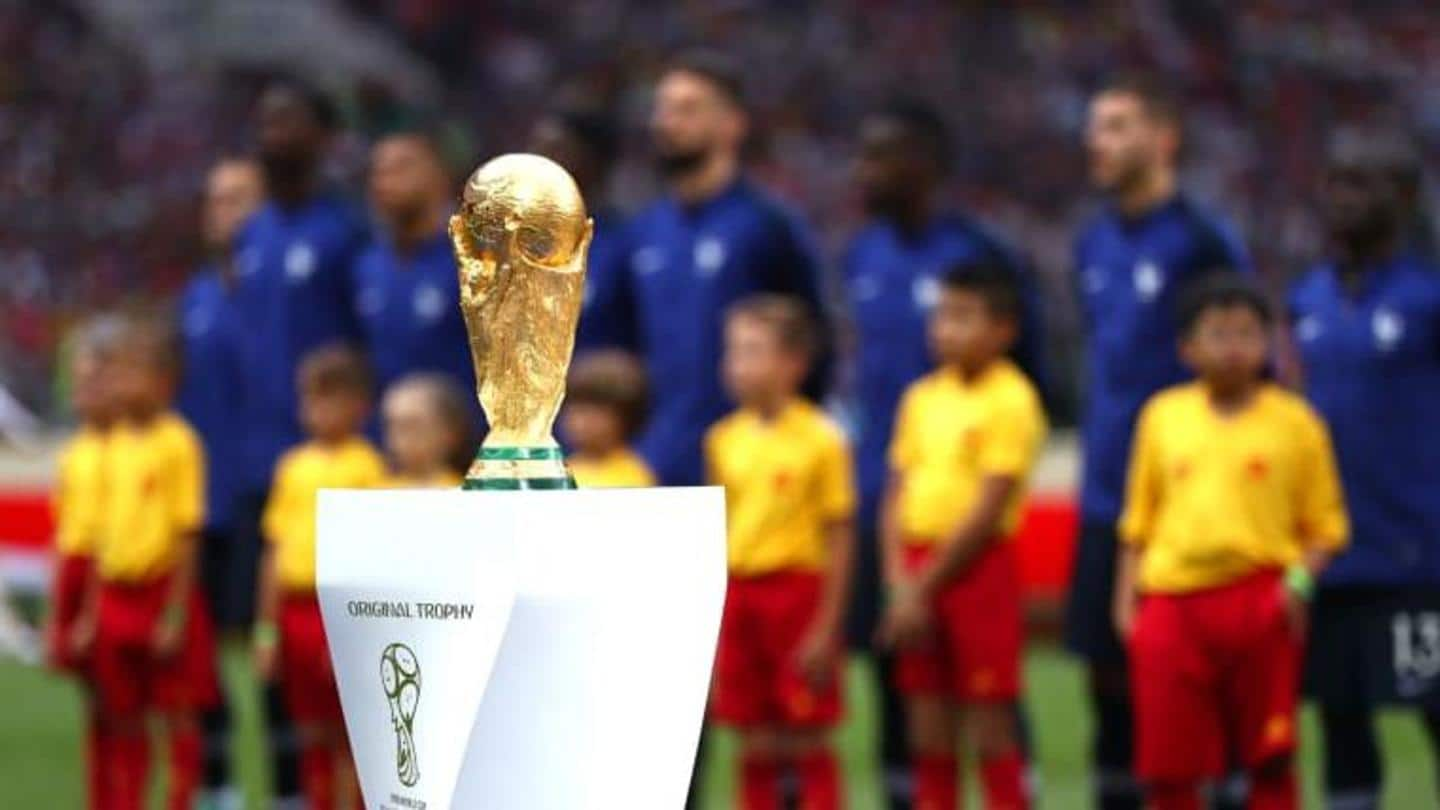
Will FIFA make the World Cup biennial?
What's the story
The football World Cup is held every four years since the inaugural edition in 1930.
However, in what could be a major move, FIFA is planning to conduct the global tournament every two years instead of four.
During its annual congress on Friday, majority of nations voted in favor of changing the current four-year cycle.
Let us analyze the same.
Details
A look at the details
As per a report in The Indian Express, the proposal to determine the viability of this idea was presented by Saudi Arabia.
As many as 166 out of FIFA's 209 member nations voted in favor of it, while 22 were against.
Notably, former Arsenal manager Arsene Wenger, and now FIFA's director of development, had put forth this suggestion in March this year.
Do you know?
The idea was first shared by Sepp Blatter in 1999
Former FIFA president Sepp Blatter presented this idea in 1999. He drew criticism, mainly from European football's governing body, UEFA. However, Blatter asserted that changing the World Cup cycle to every two years was necessary to "boost international football".
Favor
FIFA president Gianni Infantino advocates the idea
FIFA president Gianni Infantino claimed the customization of international calendar will see more meaningful games.
He said a biennial World Cup will help the countries outside Europe to play more meaningful games.
"In Africa, out of 54 countries, only five qualify for the World Cup. If you don't qualify what are you doing for the next four years? Nothing?" he questioned.
Flip
What is the flip side?
One of the biggest argument against this idea is that conducting a biennial World Cup could disparage the tournament.
The FIFA World Cup has managed to maintain its legacy over the years as the teams prepare and wait for it for four years.
However, Wenger, in his argument, opines, "The Champions League is held every year and it's very prestigious."
Factors
Here are the other factors
Staging the World Cup every two years will certainly have an impact on the continental championships.
The Euros, the continental championship of Europe, conducted by the UEFA every two years after the World Cup, could lose its significance.
There could be a clash between two of the biggest football tournaments.
Similarly, Copa America will have to rejig its calendar.
Workload
The workload of players will increase
A WC every two years would give rise to more international matches.
This means most of the international friendlies will be replaced by the qualifying matches.
The emergence of new tournaments has already increased the workload of players.
If the WC is made biennial, the clubs will have to release their players frequently, leading to a delay in the resumption of domestic leagues.